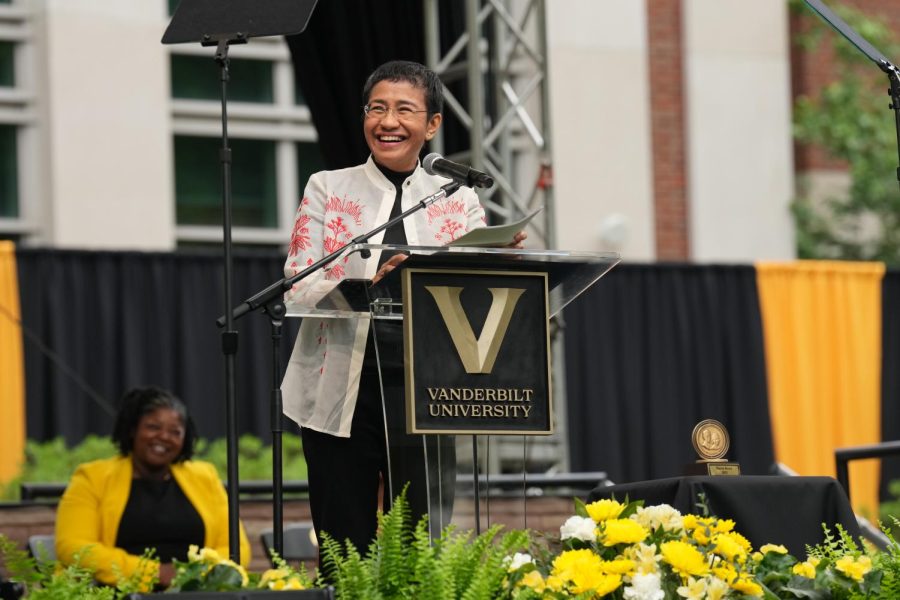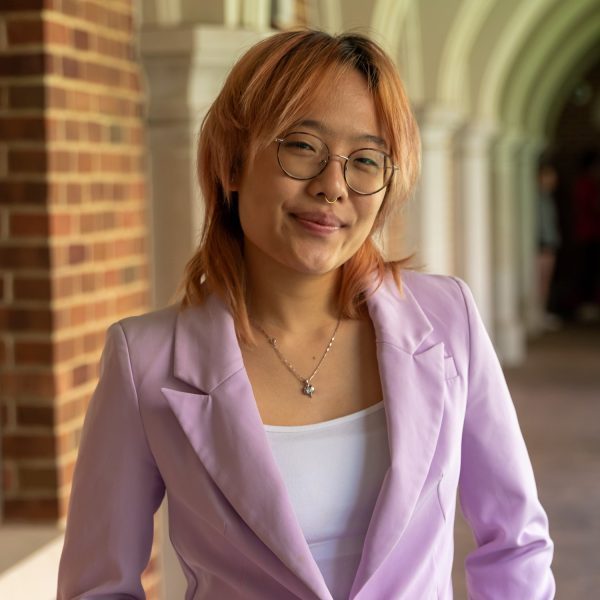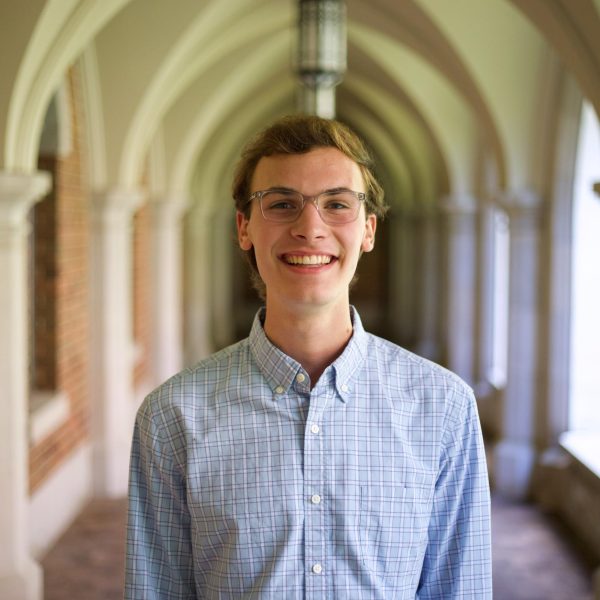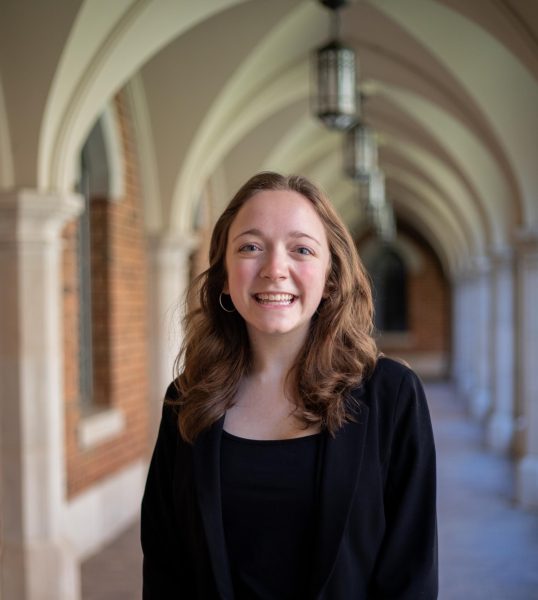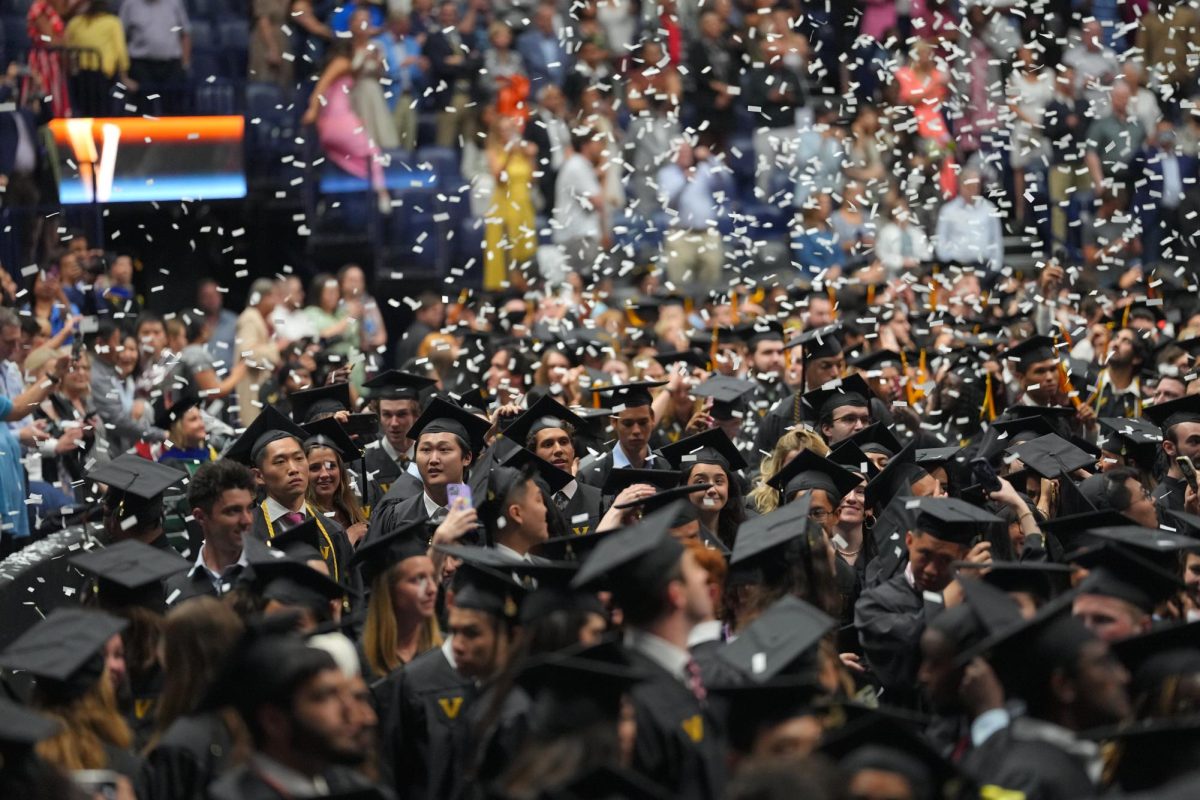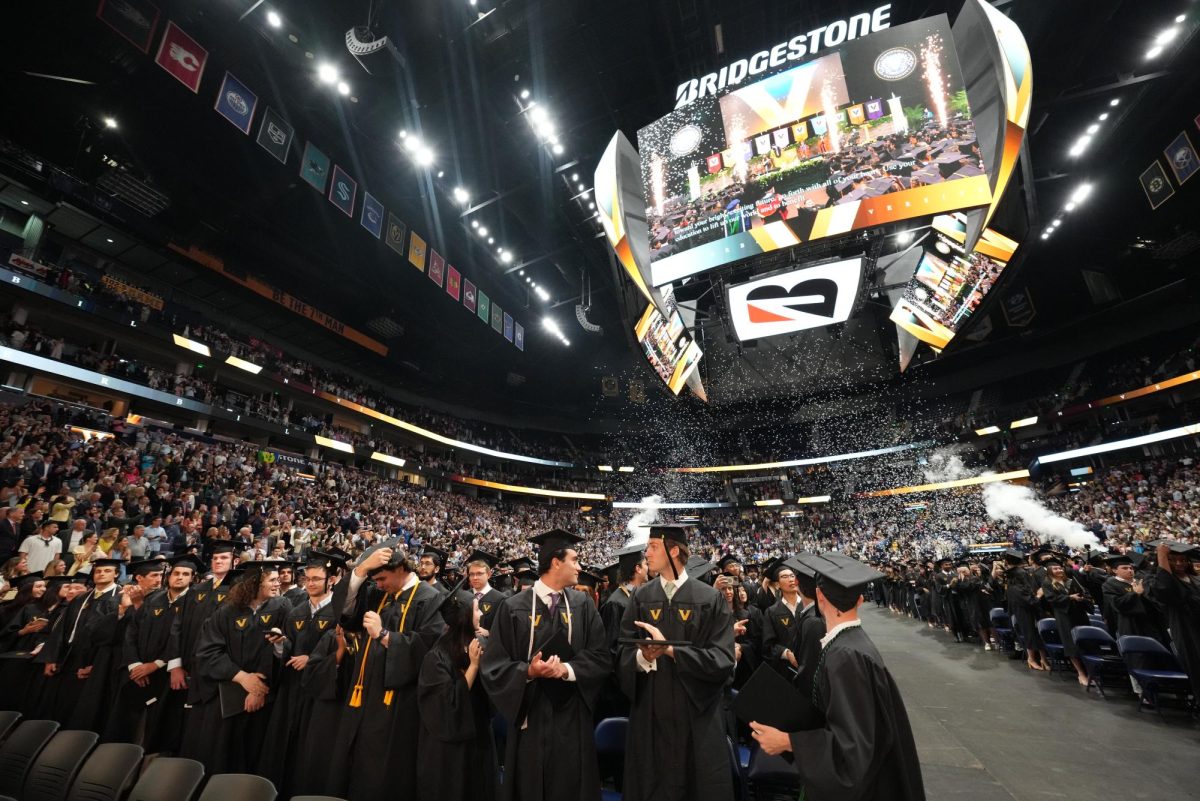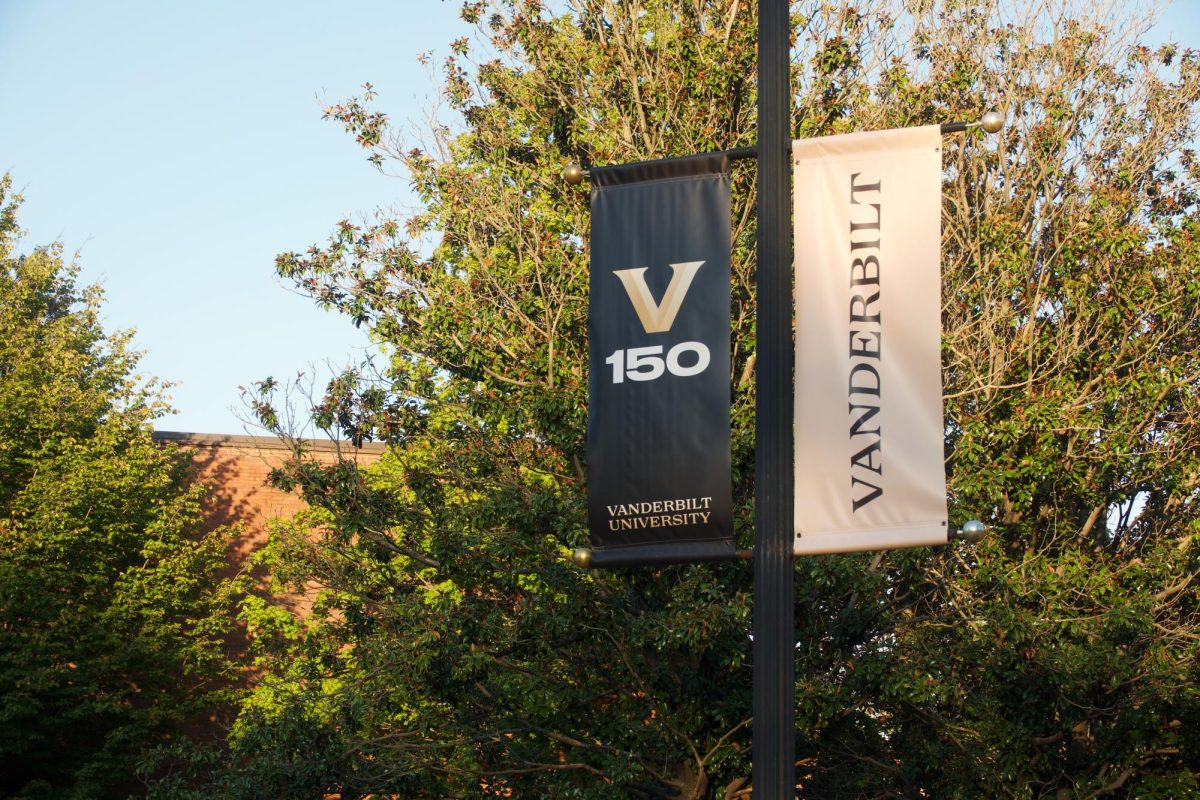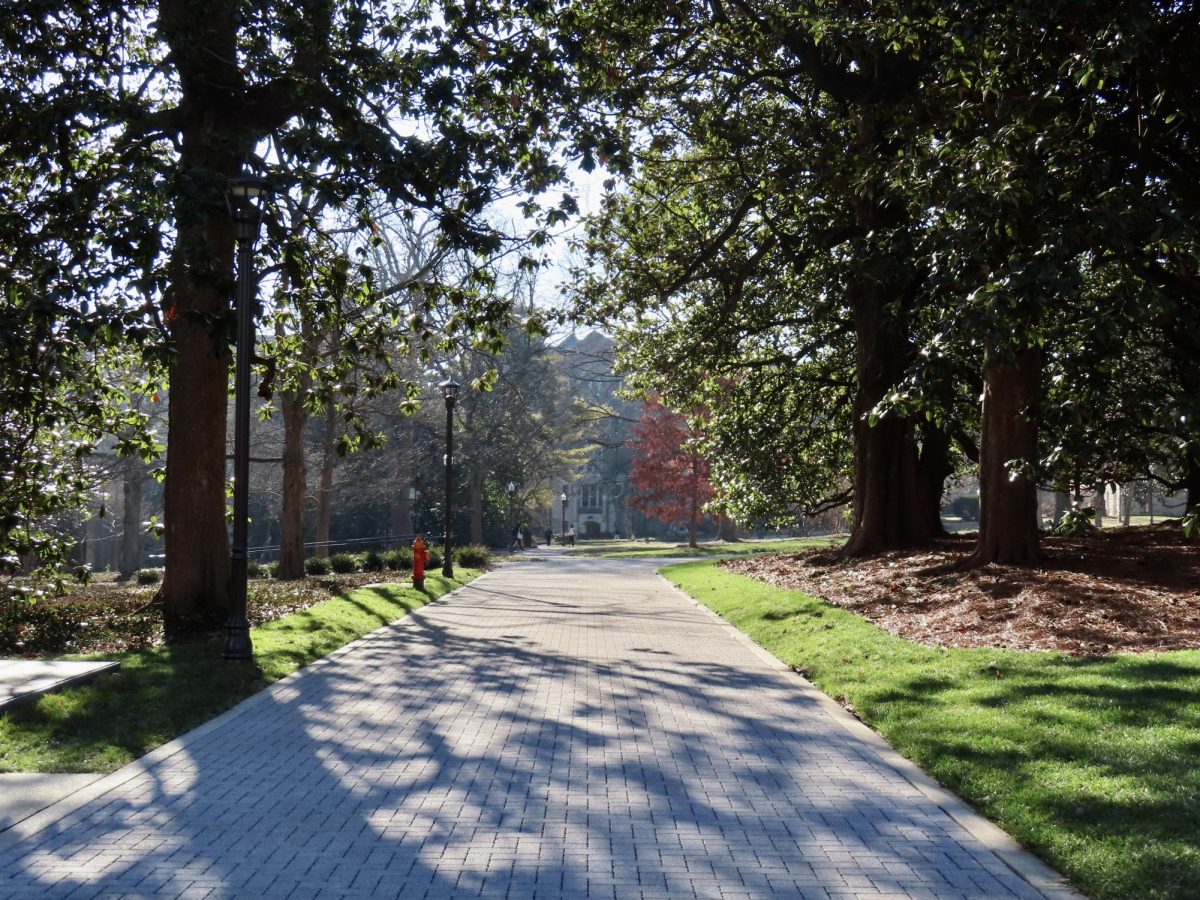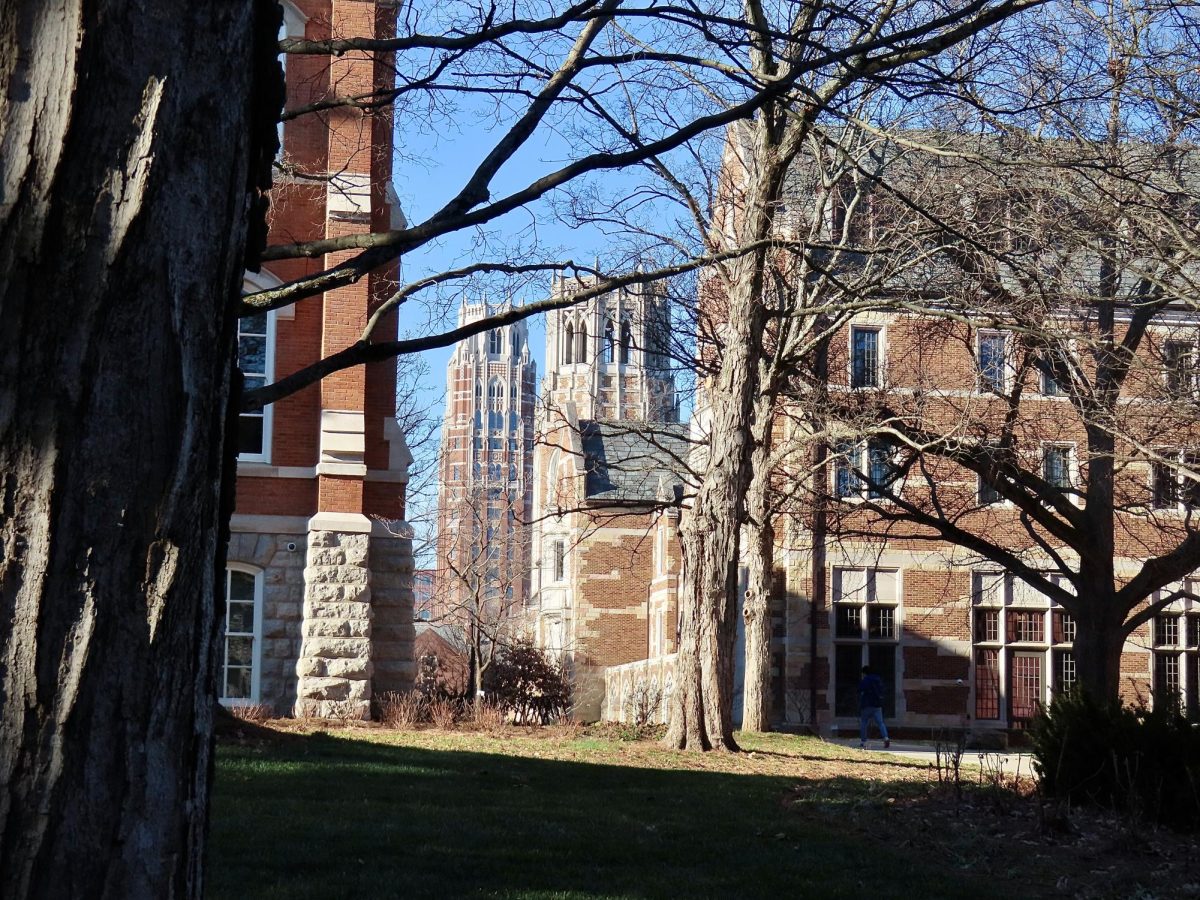On May 12, The Hustler spoke with Maria Ressa, a Nobel Peace Prize-winning journalist and co-founder of the news site Rappler. Ressa delivered the keynote speech at the Graduates Day ceremony for the Class of 2023 and received Vanderbilt’s Nichols-Chancellor’s Medal.
Reporting extensively on press freedom and corruption in the Philippines, Ressa received the 2021 Nobel Peace Prize for her efforts to “safeguard freedom of expression” and was named Time Magazine’s 2018 Person of the Year. As a result of her reporting, Ressa has faced arrest and criminal charges by the Philippine government. She has also published several books, most recently “How to Stand Up To a Dictator” in 2022.
Vanderbilt Hustler: You have been a champion of free speech in your reporting. What do you believe powerful institutions, such as governments and universities, should do to safeguard and be accountable for freedom of expression in their communities?
Ressa: It’s not freedom of speech that’s necessarily the problem; it’s the distribution that’s the problem. The algorithms of social media platforms, by design, amplify what will keep you scrolling, and lies spread six times faster. The debate in the United States is largely focused on, as Elon Musk will say, your right to speech. That’s not correct, because the distribution is not equal. We can all have a crazy neighbor who believes in a conspiracy theory, but these tech platforms amplify those conspiracies theories like they are real, and they then take over the information ecosystem. Journalists were the gatekeepers of the information ecosystem, but around 2014, technology took over the distribution part. They took the money, but they didn’t take the responsibility, so they abdicated responsibility for protecting the public sphere. They also abdicated responsibility for protecting what they would call their users. If you talk to any of the tech companies, they’ll say, ‘We’re only reflecting our users.’ The reality is, that’s a lie.
In some ways, free speech is used to stifle free speech. This is information warfare. Americans were targeted by Russian disinformation in the 2016 elections. This data was released by the U.S. Senate Intelligence Committee in 2018, and they showed with something like Black Lives Matter, the Russian disinformation networks targeted both sides of Black Lives Matter. Targeting means saying a lie a million times, inciting anger and hate, because the end goal is not to make you believe one thing; it is to make you distrust everything.
Unfortunately, our information ecosystem today is corrupted, and we’ve got to stop that. I think the biggest problem is the tech lobby. The tech lobby wants you to stop at content moderation, but think about the ecosystem as a river. You have to go further upstream to that factory of lies. Everything that you post on something like Facebook, they use machine learning to build a model of you. AI comes in and takes everything and that becomes the mother lode database that is used to microtarget your weakest moment to a message.
In your work and Commencement address, you have highlighted the ways in which social media can be weaponized as a political tool. What do you think graduates, especially those going into related industries, can do to counter issues of misinformation?
Going into tech, it needs to be designed from the very beginning with safety in mind. When you walk into these companies, it’s almost like going into a cult. If you live in San Francisco, they will tell you everything wonderful about AI, ChatGPT and Generative AI. Rappler used GPT-3 when we had 18,000 simultaneous elections in May 2022. We have 10 reporters, and I wanted to have a biography of every single person running in all those 18,000 elections. So we generated about 50,000 pages, and at the bottom of every one it said that the page was done with open AI GPT-3 and Chat by Rappler research.
I would say, if you’re walking into this, have an imagination to imagine both the best and the worst. Part of the problem here, and why some of these AI guys feel like it will be an extinction event, is that GPT-4 actually codes itself. It knows how to code, and it learns, and it can create itself, and we have no idea where that will lead. What they will say euphemistically is that this AI “hallucinates,” but if you’re a newsgroup, you can’t hallucinate. And the difference with this generative AI is that it creates intimacy in a way that Google search would not.
If you’re working in the industry, safety by design is the first one. I think that policy people have to ramp up — politicians and lawmakers need to actually do their responsibility. Two groups abdicated responsibility to protect us: the tech companies that are making money and the U.S. government. For example, these were all U.S. companies up until ByteDance and TikTok. We live in countries where a building code determines whether or not a building can be built. And that’s the same thing. These are buildings that are being built for our hearts and minds. Why are they not regulated? Why is there not an ISO? And not regulation of speech — it isn’t about censorship. It is about design. It’s about making a software engineer go through the kind of rigor a civil engineer does.
You are being awarded the Chancellor’s Medal as a part of Commencement for being someone who ‘defines the 21st century.’ How do you feel your work relates to this recognition and how does it feel to be accepting it?
I feel like I am the transition. I grew up in the golden age of journalism where the lines were very clear. It was a complex world but in many ways much easier than the world today. And as the world quickly changed, what I did is I stuck to the values. I took my own advice, which is that values about good and evil don’t really change. It will never be good to kill. It will never be good to lie. I stuck to my values. I am turning 60 this year, and I feel like I am still idealistic. That is the first thing.
The second one is when we were tested — and it is not just me, it is the team I work with, the journalists held the line at great cost. I feel like we are doing that for you. Now you are going to have to figure out actually how to fix the problems that are there. There is a transition that is happening. I am coming from the old world to the new. I recognize the patterns of radicalization from the work I did in terrorism. But this moved to politics. This moved to our hearts and minds. It was not just a security issue. It has taken a while for folks to realize that what once was a national security issue is literally what is happening in our own politics. That is not really good to say. Americans are not going to like that. The things that you think are happening in the global south are happening here, and it is American companies that started it.
After completing your undergraduate degree, you went on to pursue a Fulbright Fellowship and work in journalism. What is an important lesson you learned from your career that you wish you had known when you graduated?
I was an immigrant kid, and this was a different time. I think your generation will look at me as too much of a conformist. I think, looking at my old self, I would have wanted maybe to be more demanding. But maybe part of the reason you can be so “woke,” why the next generation can do that, is because there were people like me who sat there and who proved ourselves. I always felt like as an immigrant, I needed to be 150% better. You have to put in 150% effort. I wrote ‘How to Stand Up to a Dictator’ to really show that I’m not a rebel at any level. It’s not in my DNA. I deal with conflict. I feel like you need to surface that to get anything done, but in the end, it’s about closing the gaps.
I didn’t really give you a concrete answer, because I don’t really know. I like the way I grew up. It’s a different time. I think you saw this in the address that I gave — I think your challenges are far harder than what mine were. Before social media, the way you tried out identities, the way you tried out ways of speaking, of dressing, was doing this with your family, with your parents, with your friends. Now, people do it on social media. I think curating your life for social media is a performative thing. So the hard part there is, who are you really? Are you doing it for people or are you doing it for yourself? That’s the hardest thing to sort out, making the choice yourself, not for everyone else but for you. That’s the core.
As someone who started your undergraduate career on a pre-med track and ended up graduating with a degree in English and certificates in theater and dance, what advice would you give to graduating students with diverse and changing interests that may not all relate to the career they intend to pursue?
You need that. I think in my generation it was about specialty, but this generation — your generation — you have to cut across. Part of the problem is that the technical STEM folks are too technical. Humanity is humanity. These things come together. I think we have to cut across vertical disciplines. Left brain, right brain — you have to feed your soul. In the left brain, the learning that you could do is in some ways mechanical, and I worry this is where AI will take it away from you.
But then the other part — the emotions, the thinking fast part, the arts. The arts move us in ways that we couldn’t do any other way and that’s also part of leadership. I encourage you to cut across and look at things holistically. The things that are manipulating us are manipulating the parts that we smart people tended to ignore.
Why did you choose to leave the U.S. and return to Asia to teach and report, and what perspectives did you gain from the experience of living and working outside of the US?
I think for me, it was a time of roots. I never felt completely American, so I thought maybe I am Filipino, and I applied for a Fulbright to go back to the Philippines. I grew up in the New Jersey-New York area, and I never got sarcasm or irony. I felt people were being mean when they were being sarcastic. When I went back to the Philippines, I figured out why. The joke about the Philippines is we spent 300 years in a convent and 50 years in Hollywood. That’s our colonial rule: 300 years under Spanish rule and 50 years under American rule. What I realized when I got to the Philippines is that I was never as American as when I was with Filipinos. I learned to integrate those different parts of who you are. I think that is the best training for journalists. When I am with Filipinos, I feel very American. When I am with Americans, I feel very Filipino. Over time, that is the creation of your identity. I embraced both sides and tried to look for the best in each.
Being openly lesbian, do you have any advice for LGBTQ+ graduates as they go forward in a time in which we are seeing greater numbers of legislation aimed against the LGBTQ+ community in the U.S.?
Thank you for the question. I think of all the interviews I’ve done for the book, only three have asked me that question. I lived most of my life like ‘Don’t Ask, Don’t Tell’ because I worked in countries where it was illegal to be gay. It’s illegal to be gay in Indonesia, in Singapore.
To build a world, it takes two, so it’s very critical who your partner is. For journalists in my time — the golden age of journalism, we moved all the time. So it’s always, you build your world together. That’s the first piece of advice.
The second thing is, know where you are and which battles you will fight. Sometimes you’re in countries where you bow to the majority. Maybe your generation won’t. But you have to choose the battles, and that will be determined by your mission, your purpose. What will define you? What will you want to become? Other advice: You’ve got to find love.
Answers have been edited for length and clarity.

